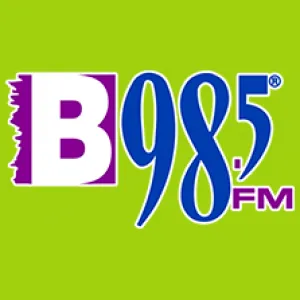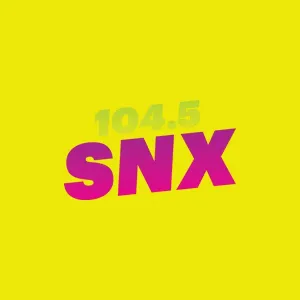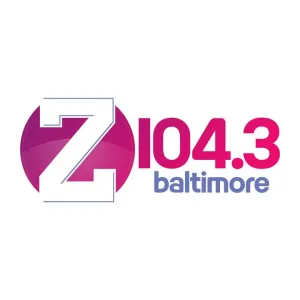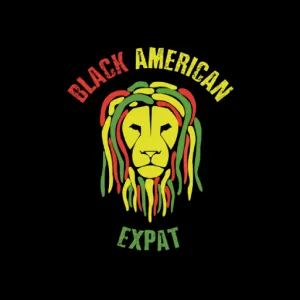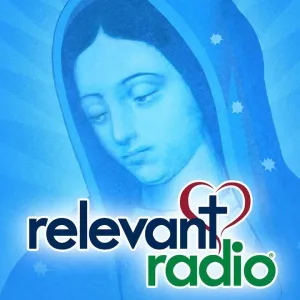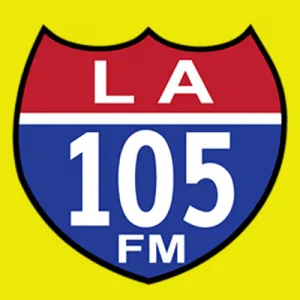Radio WOAP
0
Share
0
0
[
Listen Live
]WOAP (1080 AM, "The Big 1080") is a radio station broadcasting an oldies format. Licensed to Owosso, Michigan, it first began broadcasting in 1948. The station's 1,000-watt signal reaches outlying areas of the Flint and Lansing markets. The station is allowed to operate at greatly reduced power under its presunrise authorization and postsunset authorization permits at the times specified in the permits.
WOAP was founded as an AM/FM combo station by the local Argus-Press newspaper. The call letters stand for Owosso Argus-Press. As the AM ... See more
Owosso AM|1080
989-472-4105
[email protected]
http://www.thebig1080.com
Views:
29Recommended radio stations:
WOAP (1080 AM, "The Big 1080") is a radio station broadcasting an oldies format. Licensed to Owosso, Michigan, it first began broadcasting in 1948. The station's 1,000-watt signal reaches outlying areas of the Flint and Lansing markets. The station is allowed to operate at greatly reduced power under its presunrise authorization and postsunset authorization permits at the times specified in the permits.
WOAP was founded as an AM/FM combo station by the local Argus-Press newspaper. The call letters stand for Owosso Argus-Press. As the AM station was, and still is, a daytime-only station, the FM station was intended to provide full-time service to the Owosso area. But at that time, there were very few FM radios so WOAP-FM went silent by 1953. A decade later, there were enough FM radios in circulation to allow WOAP-FM to return to the air on December 2, 1965.
Because the Argus-Press monopolized media in the Owosso area at that time with its daily newspaper and two radio stations, the Federal Communications Commission forced the Argus-Press to sell the radio stations in 1987.
The FM station was later known as WMZX and is known today as WRSR. In the late 1990s, the Michigan Radio Group sold both stations. Connoisseur Communications then assumed ownership of both, turning WMZX into a more regional station serving the Flint area while still licensed to Owosso (the station is now part of Cumulus Broadcasting's Flint cluster). The weaker WOAP, with its daytime-only signal, was then sold the following year to Hartman Broadcasting, which continued to operate WOAP as a local service, with an Adult Standards/Oldies music format branded as Great American Classics.
Less than two years later, Hartman Broadcasting sold WOAP to 1090 Investments, which immediately applied to the Federal Communications Commission (FCC) for a construction permit to move the station's operations to Waverly, located in Lansing's suburbs. The move would allow WOAP to increase its daytime power to 50,000 watts and add nighttime power authorization at 4500 watts. Three years after the application was received, the FCC chose to dismiss the application, presumably under the likelihood that granting the station nighttime power would cause interference to WTIC in Hartford, Connecticut and KRLD in Dallas, Texas; also broadcasting on this same frequency.
In January 2006, WOAP dropped its full-service news/talk format and adopted Catholic-based Religious programming. Three months later, 1090 Investments requested a Special Temporary Authority (STA) for silent station from the FCC, citing financial difficulties. The station remained off the air for almost a year. Four months after going dark, the station applied for reinstatement to move its facilities to Waverly and increase its daytime power, but withdrew its application for nighttime power. However, 1090 Investments pleaded for the FCC in its engineering presentation to be considered for nighttime power again, citing that denying Waverly local radio service in favor of a Connecticut station that had no local presence in Michigan would hurt its attempts to serve its community in an adequate fashion.
In March 2007, WOAP was granted permission to move from Owosso to Waverly and increase its power with a six-tower directional antenna system to be built in Ingham County, about 20 miles south of Lansing. The station also returned to the air with a simulcast of affiliate station WCAR in Livonia. Despite the good news, WOAP again applied for a silent STA, going dark again on July 20, 2007.
WOAP applied for an extension to their silent STA on January 8, 2008, citing ongoing financial difficulties. The request was granted on February 25, 2008. The STA extension expired on July 21, 2008. The station returned to the air in mid-July 2008 simulcasting co-owned WCAR, but fell silent once again on August 18, 2008.
On July 21, 2008 (the day that WOAP's STA extension was set to expire), local webcaster Mint City Radio launched WOAP Online, an internet-only radio station patterned after the old WOAP, but not associated with Michigan Catholic Radio. WOAP Online was programmed as a local radio station, featured music from the 1970s-90s, agricultural features, local announcements and old-time radio shows. WOAP Online has also featured coverage of local events, such as the Clinton County 4-H Youth Fair and Saint Johns Mint Festival (including coverage of the annual Mint Festival Parade).
In September 2008, the station again applied for permission to remain silent due to "ongoing financial problems". As of December 19, 2008, the FCC had not yet granted the STA permission. As a matter of general FCC policy, financial causes are not sufficient reason to remain silent and still retain the license - the reason must be something "beyond the control" of the licensee.
In May 2009, 1090 Investments sold its radio stations, including WOAP, to Birach Broadcasting Corporation. At that point, Mint City Radio dropped the WOAP moniker for its webcasts effective June 1.
When the new management entered the studios for the first time on July 18, they found that practically nothing worked and the roof leaked. They had to start from scratch to rebuild the station and had a deadline from the FCC of August 18 to get the station back on the air or lose their operating license.
The station returned to the air branded as The Big 1080 on August 14, 2009 with an oldies format from its Owosso studio location. As the station returned to the air, the master control studio was being rebuilt and the neon WOAP sign, which had not worked for several years, was being repaired. WOAP announced on the air that Birach Broadcasting abandoned plans to move the station to the Lansing area.
"The Big 1080" returns the traditional oldies format to a large chunk of mid-Michigan that had been without the format for some time, as the Lansing market no longer has an oldies station (with the closest things to an oldies station in that market being "America's Best Music" WXLA-AM and classic hits WLMI-FM) and WHNN-FM, which serves the Tri-Cities and Flint, has moved to a classic hits sound and dropped many 1960s titles from its playlist. WOAP is also the only station serving the Flint market with a 1950s-1970s nostalgia-based format, as WFNT-AM, which had been airing Citadel Media's Timeless Favorites format, changed to a News/Talk format in February 2010. On weekdays from 3 p.m. to 9 p.m., WOAP carries programming from the MI Entertainment Radio network. The shows are MI Entertainment Afternoon from 3 to 6 and Spartan Nation Radio which covers Michigan State University athletics from 6 to 9. The station began 24-hour streaming audio on the World Wide Web on September 2010. While WOAP's streaming audio does not offer MI Entertainment Radio programming, that programming is available on its web site.
WOAP was founded as an AM/FM combo station by the local Argus-Press newspaper. The call letters stand for Owosso Argus-Press. As the AM station was, and still is, a daytime-only station, the FM station was intended to provide full-time service to the Owosso area. But at that time, there were very few FM radios so WOAP-FM went silent by 1953. A decade later, there were enough FM radios in circulation to allow WOAP-FM to return to the air on December 2, 1965.
Because the Argus-Press monopolized media in the Owosso area at that time with its daily newspaper and two radio stations, the Federal Communications Commission forced the Argus-Press to sell the radio stations in 1987.
The FM station was later known as WMZX and is known today as WRSR. In the late 1990s, the Michigan Radio Group sold both stations. Connoisseur Communications then assumed ownership of both, turning WMZX into a more regional station serving the Flint area while still licensed to Owosso (the station is now part of Cumulus Broadcasting's Flint cluster). The weaker WOAP, with its daytime-only signal, was then sold the following year to Hartman Broadcasting, which continued to operate WOAP as a local service, with an Adult Standards/Oldies music format branded as Great American Classics.
Less than two years later, Hartman Broadcasting sold WOAP to 1090 Investments, which immediately applied to the Federal Communications Commission (FCC) for a construction permit to move the station's operations to Waverly, located in Lansing's suburbs. The move would allow WOAP to increase its daytime power to 50,000 watts and add nighttime power authorization at 4500 watts. Three years after the application was received, the FCC chose to dismiss the application, presumably under the likelihood that granting the station nighttime power would cause interference to WTIC in Hartford, Connecticut and KRLD in Dallas, Texas; also broadcasting on this same frequency.
In January 2006, WOAP dropped its full-service news/talk format and adopted Catholic-based Religious programming. Three months later, 1090 Investments requested a Special Temporary Authority (STA) for silent station from the FCC, citing financial difficulties. The station remained off the air for almost a year. Four months after going dark, the station applied for reinstatement to move its facilities to Waverly and increase its daytime power, but withdrew its application for nighttime power. However, 1090 Investments pleaded for the FCC in its engineering presentation to be considered for nighttime power again, citing that denying Waverly local radio service in favor of a Connecticut station that had no local presence in Michigan would hurt its attempts to serve its community in an adequate fashion.
In March 2007, WOAP was granted permission to move from Owosso to Waverly and increase its power with a six-tower directional antenna system to be built in Ingham County, about 20 miles south of Lansing. The station also returned to the air with a simulcast of affiliate station WCAR in Livonia. Despite the good news, WOAP again applied for a silent STA, going dark again on July 20, 2007.
WOAP applied for an extension to their silent STA on January 8, 2008, citing ongoing financial difficulties. The request was granted on February 25, 2008. The STA extension expired on July 21, 2008. The station returned to the air in mid-July 2008 simulcasting co-owned WCAR, but fell silent once again on August 18, 2008.
On July 21, 2008 (the day that WOAP's STA extension was set to expire), local webcaster Mint City Radio launched WOAP Online, an internet-only radio station patterned after the old WOAP, but not associated with Michigan Catholic Radio. WOAP Online was programmed as a local radio station, featured music from the 1970s-90s, agricultural features, local announcements and old-time radio shows. WOAP Online has also featured coverage of local events, such as the Clinton County 4-H Youth Fair and Saint Johns Mint Festival (including coverage of the annual Mint Festival Parade).
In September 2008, the station again applied for permission to remain silent due to "ongoing financial problems". As of December 19, 2008, the FCC had not yet granted the STA permission. As a matter of general FCC policy, financial causes are not sufficient reason to remain silent and still retain the license - the reason must be something "beyond the control" of the licensee.
In May 2009, 1090 Investments sold its radio stations, including WOAP, to Birach Broadcasting Corporation. At that point, Mint City Radio dropped the WOAP moniker for its webcasts effective June 1.
When the new management entered the studios for the first time on July 18, they found that practically nothing worked and the roof leaked. They had to start from scratch to rebuild the station and had a deadline from the FCC of August 18 to get the station back on the air or lose their operating license.
The station returned to the air branded as The Big 1080 on August 14, 2009 with an oldies format from its Owosso studio location. As the station returned to the air, the master control studio was being rebuilt and the neon WOAP sign, which had not worked for several years, was being repaired. WOAP announced on the air that Birach Broadcasting abandoned plans to move the station to the Lansing area.
"The Big 1080" returns the traditional oldies format to a large chunk of mid-Michigan that had been without the format for some time, as the Lansing market no longer has an oldies station (with the closest things to an oldies station in that market being "America's Best Music" WXLA-AM and classic hits WLMI-FM) and WHNN-FM, which serves the Tri-Cities and Flint, has moved to a classic hits sound and dropped many 1960s titles from its playlist. WOAP is also the only station serving the Flint market with a 1950s-1970s nostalgia-based format, as WFNT-AM, which had been airing Citadel Media's Timeless Favorites format, changed to a News/Talk format in February 2010. On weekdays from 3 p.m. to 9 p.m., WOAP carries programming from the MI Entertainment Radio network. The shows are MI Entertainment Afternoon from 3 to 6 and Spartan Nation Radio which covers Michigan State University athletics from 6 to 9. The station began 24-hour streaming audio on the World Wide Web on September 2010. While WOAP's streaming audio does not offer MI Entertainment Radio programming, that programming is available on its web site.
© LogFM.com, 2009-2024 (2024-04-05,04:04:56)
